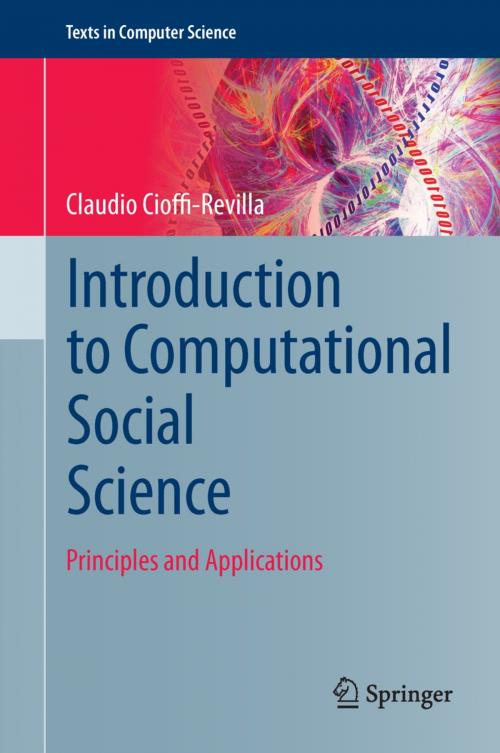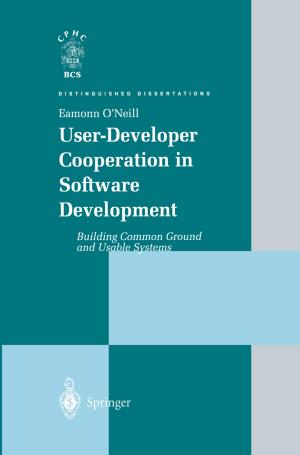Introduction to Computational Social Science
Principles and Applications
Nonfiction, Social & Cultural Studies, Social Science, Methodology, Computers, Database Management, Data Processing| Author: | Claudio Cioffi-Revilla | ISBN: | 9781447156611 |
| Publisher: | Springer London | Publication: | December 31, 2013 |
| Imprint: | Springer | Language: | English |
| Author: | Claudio Cioffi-Revilla |
| ISBN: | 9781447156611 |
| Publisher: | Springer London |
| Publication: | December 31, 2013 |
| Imprint: | Springer |
| Language: | English |
This reader-friendly textbook is the first work of its kind to provide a unified Introduction to Computational Social Science (CSS). Four distinct methodological approaches are examined in detail, namely automated social information extraction, social network analysis, social complexity theory and social simulation modeling. The coverage of these approaches is supported by a discussion of the historical context, as well as by a list of texts for further reading. Features: highlights the main theories of the CSS paradigm as causal explanatory frameworks that shed new light on the nature of human and social dynamics; explains how to distinguish and analyze the different levels of analysis of social complexity using computational approaches; discusses a number of methodological tools; presents the main classes of entities, objects and relations common to the computational analysis of social complexity; examines the interdisciplinary integration of knowledge in the context of social phenomena.
This reader-friendly textbook is the first work of its kind to provide a unified Introduction to Computational Social Science (CSS). Four distinct methodological approaches are examined in detail, namely automated social information extraction, social network analysis, social complexity theory and social simulation modeling. The coverage of these approaches is supported by a discussion of the historical context, as well as by a list of texts for further reading. Features: highlights the main theories of the CSS paradigm as causal explanatory frameworks that shed new light on the nature of human and social dynamics; explains how to distinguish and analyze the different levels of analysis of social complexity using computational approaches; discusses a number of methodological tools; presents the main classes of entities, objects and relations common to the computational analysis of social complexity; examines the interdisciplinary integration of knowledge in the context of social phenomena.















